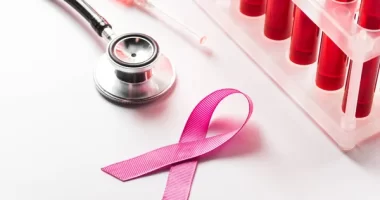States across India have begun declaring a “black fungus” epidemic as cases of the fatal rare infection shoot up in patients recovering from Covid-19.
The fungal disease, called mucormycosis, has a 50% mortality rate. It affects patients initially in the nose but the fungus can then spread into the brain, and can often only be treated by major surgery removing the eye or part of skull and jaw.
It is usually a rare disease, but more than 7,200 people in India have now been reported with mucormycosis and 219 have lost their lives. The rise in black fungus infections, mostly in patients who had severe cases of Covid-19, has been linked to an overuse of steroids in the treatment of the coronavirus, which can acutely compromise the immune system if taken over a prolonged period. The high incidence of diabetes in India has also been blamed, with high blood sugar levels linked to susceptibility. India has the second highest rate of diabetes in the world.
It has also been reported in Covid patients who were on ventilators in intensive care units, due to their airways being exposed to humidity and moisture.
The disease is caused by fungal spores found in soil and organic matter, usually inhaled by humans from the air. The mould enters the body and then manifests around the nose and eye sockets, causing the nose to blacken, and if not stopped will move fatally into the brain. Healthy individuals will usually fight off the fungus but it can spread fast in those with compromised immunity.
So far five states, Tamil Nadu, Odisha, Gujarat, Rajasthan and Telangana, have declared black fungus to be an epidemic, and more states are expected to follow. The Indian Council of Medical Research has issued an advisory on the diagnosis and treatment of the disease.
Maharashtra, the first state to be hit hard by India’s second Covid wave, has already reported upwards of 1,500 cases and 90 deaths, the highest in the country. Hospitals in Delhi have also begun reported an unprecedented rise in cases – as much 15 to 20 new cases per day in some hospitals, compared with previous rates of one or two cases per month. In Delhi and Bangalore, there are now waiting lists for beds for treatment for the disease.
Dr Amit Thadhani, the director of Niramaya hospital in Mumbai, said colleagues had begun to see cases of black fungus in severe Covid patients. “Nearly all patients are diabetic or immunocompromised,” he said.
The health minister in Delhi, Satyendar Jain, said on Friday that there were 197 cases of black fungus in hospitals across the city, and special black fungus wards have now been set up in the large government hospitals to deal with the influx of patients. Jain blamed the “very dangerous” misuse of steroids to treat Covid-19 as a cause of the epidemic.
Balram Bhargava, the director of the the Indian Council of Medical Research, said of the black fungus: “If a person’s immunity is suppressed, it will infect them. If the spores have access to high sugar [levels], it will grow. We have seen this happen with Covid-19 patients with diabetes and uncontrolled sugar, or who are immunocompromised or have been given immune-suppressants.”
The epidemic is spreading fast. In Gujarat, there were 371 cases in the state capital, Ahmedabad, and another 400 in Rajkot, a city hit hard by Covid-19. Goa has so far recorded six cases of mucormycosis. The first case in Kashmir was detected on Friday.
The rise in cases has led to a shortage of drugs. On Thursday, the Delhi high court told the central government to procure vital anti-fungal drugs from “wherever it is available in the world … time is at a premium and so are human lives”. The government said the shortage was being tackled and more pharmaceutical firms had been granted approval to produce the injections.







